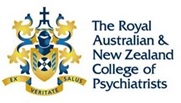
Child and Adolescent Psychiatry
What is a child and adolescent psychiatrist?
A child and adolescent psychiatrist is a medical doctor who specialises in the assessment and treatment of mental health problems in infants, children and young people. In addition to the primary medical degree and mandated experiences in general medicine, child and adolescent psychiatrists have undertaken a minimum of five years of specialty training prescribed by the RANZCP. Child and adolescent psychiatrists undertake specific training leading to the advanced certificate in child and adolescent psychiatry.
Child and adolescent psychiatrists are engaged in promoting emotional wellbeing and the prevention, early intervention and treatment of all types of mental illness, emotional disturbance and abnormal behaviour across a continuum of patients with mild episodic disorders to those with chronic and enduring disorders.
Child and adolescent psychiatrists recognise the importance of trusting, positive and empathic relationships when engaging with young people, their families, and other care givers, and acknowledge the challenges associated with personal and family functioning. Infant, child and adolescent mental health problems often have complex biological, psychological, and systemic origins. Training in the use of behavioural, cognitive, systemic, psychodynamic and cultural frameworks and psychopharmacology is invaluable for accurate diagnosis, formulation, treatment planning and delivery.
The role and responsibilities of the child and adolescent psychiatrist
The primary role of a child and adolescent psychiatrist is to use their skills and medical expertise to achieve the highest quality of care for young people experiencing mental health problems in partnership with their families or carers. To do this child and adolescent psychiatrists:
- Use their knowledge of normal and abnormal development across the life span. They take into account family functioning, systemic (social and relational) assessment, physical health, comorbidity and multiple diagnoses, neurobiology, pharmacology, emotional health and interpersonal relationships, geographic location, social adversity, and the impact of child protection, welfare, school and justice matters, as well as psychiatric disorders and substance use disorder (in both young people and their adult carers). They apply an integrated biopsychosocial model in understanding, diagnosing and managing mental illness, emotional disturbance and abnormal behaviour and provide person-centred and family-focused mental health care that is developmentally informed, timely and appropriate.
- Seek and synthesise information from multiple sources to inform clinical decisions. Sources may include interviews with the individual, family (acknowledging that more than one person may be the clinical focus within a family) and other key informants (including other doctors and mental health professionals, education professionals and others supporting the young person), observations within the home, school or other settings, laboratory tests, imaging, structured mental health assessments and structured assessments by other professionals, for example, neuropsychological assessments or developmental assessments.
- Deliver evidence-informed treatment tailored to meet the social and personal needs of the young person and their family, including the settings in which they live e.g. family, school, and local communities. Recognise that cultural contexts may impact on assessment, management, and recovery and that the availability and presence of other services available for young people have an impact.
- Recommend or undertake a comprehensive range of interventions including medication treatments and psychotherapeutic treatments with young people and their families; and recommend or enable appropriate social interventions e.g. in schools.
- Support others caring for the young person and maintain hope for the young people and their family through family work and consultation to other services. They are sensitive to and respectful of the young person and their family or carers’ individual choices for intervention.
- Recognise the importance of ongoing developmental processes in recovery and acknowledge that whilst the recovery processes are relevant for young people, how these are expressed will depend on their age and developmental stage and requires interventions to be aligned with a young persons and family’s developmental needs. This includes recognition of broader developmental risk whereby academic, occupational, personal and social developmental outcomes may be compromised due to mental illness or where developmental delays or deficits contribute to compromised mental health.
(excerpt from RANZCP Professional Practice Guidelines)
